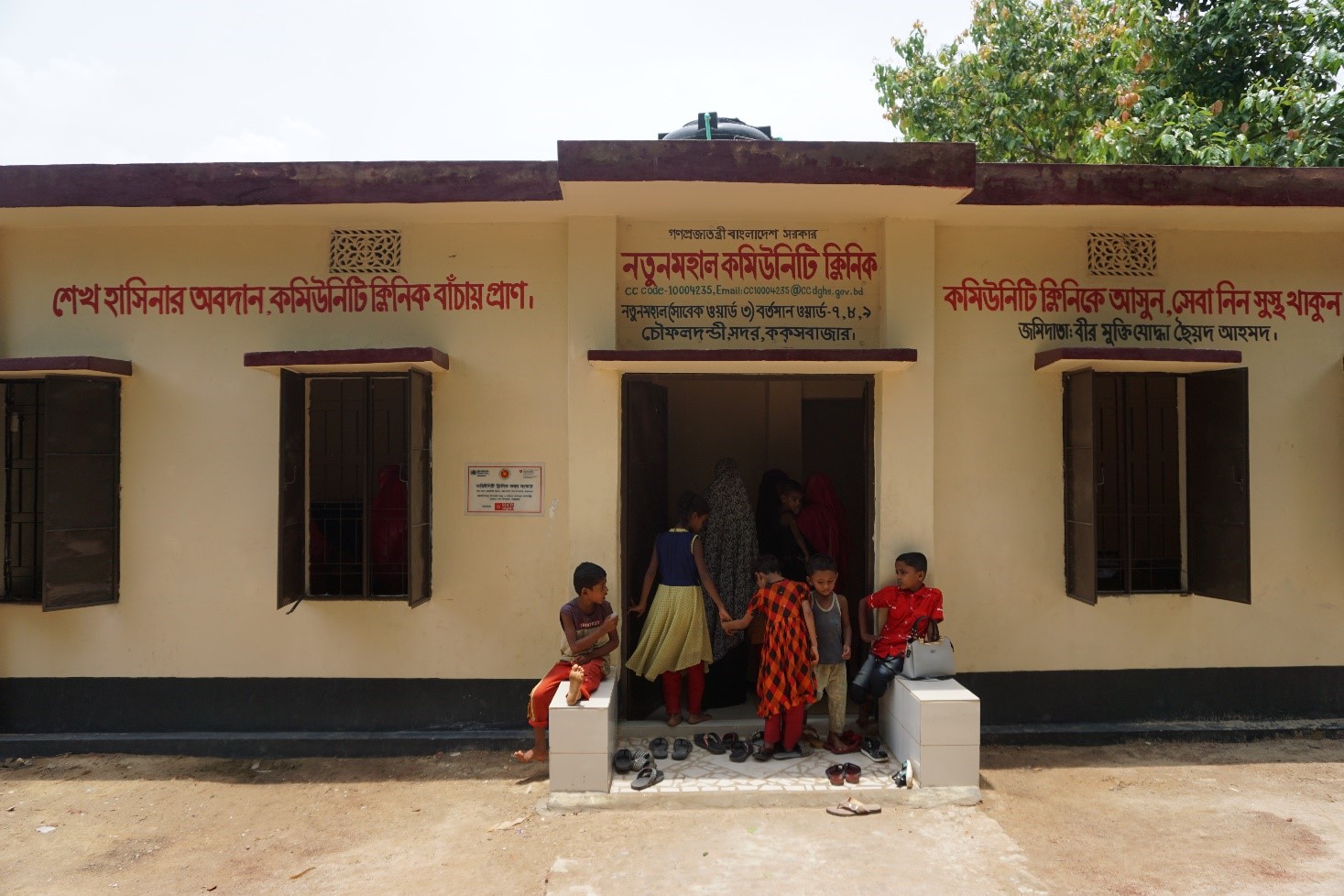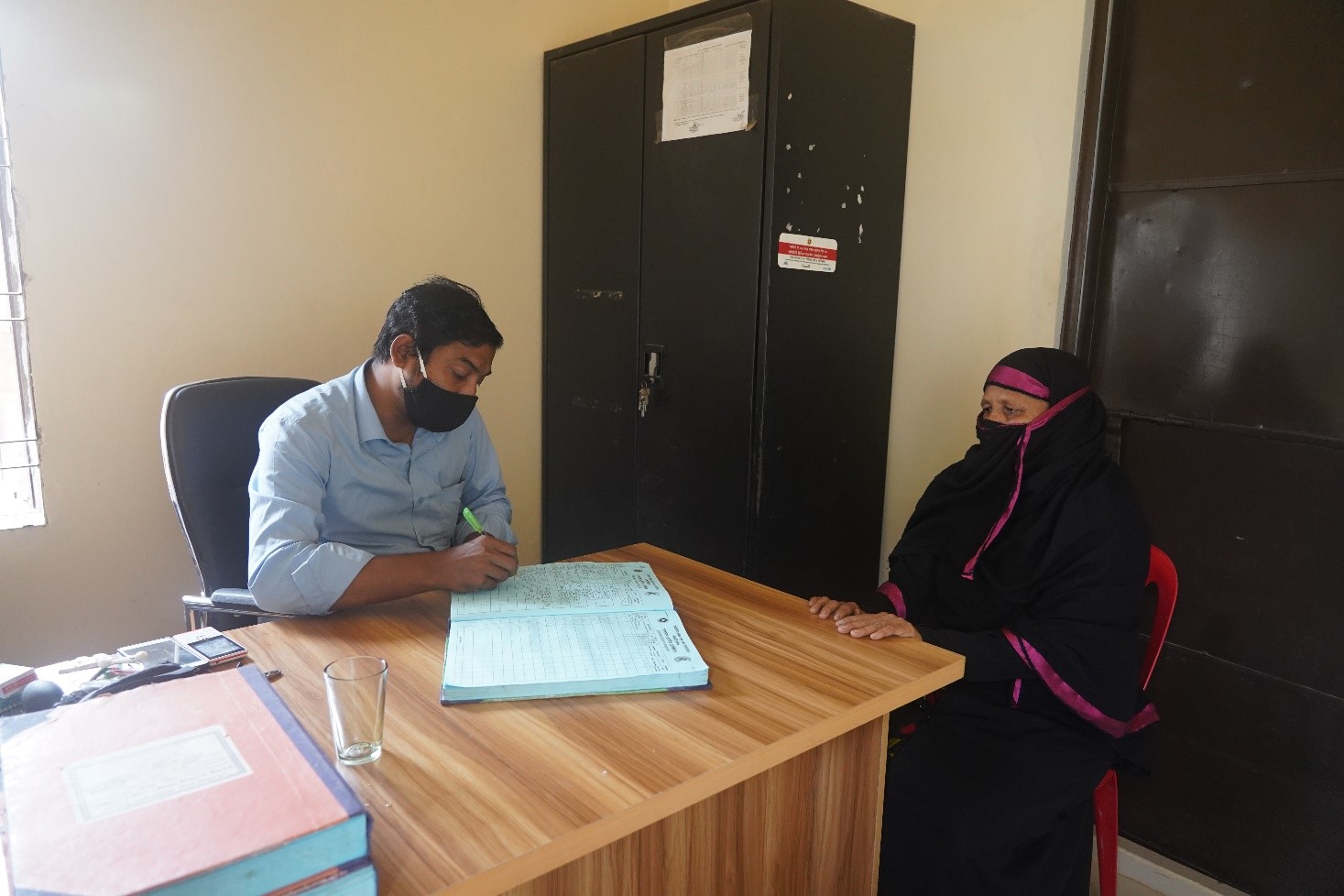13. October 2021
Authors: Mithila Rahman Soshy, Intern, HEKS/EPER; Noor Kutubul Alam Siddique, Project manager-Health, HEKS/EPER; Shahid Kamal, Regional Humanitarian Aid Delegate-ASIA, HEKS/EPER.
The WASH Interventions of HEKS in Bangladesh
HEKS/EPER, a member of the Swiss Water and Sanitation Consortium, has been implementing the Water and Sanitation for Health Facility Improvement Tool (WASH FIT) in Bangladesh since 2018. WASH FIT is a risk-based, participative continuous quality improvement process for health care facilities (HCF) launched by WHO and UNICEF in 2018. Until 2020, the HEKS interventions in HCF in Bangladesh focused on Rohingya refugee communities and adjacent host communities. The current phase is focused on infection prevention and control and maintenance of facility infrastructure to protect staff, patients and carers in the government HCF in all the eight sub-districts of Cox’s Bazar.
Photo: People from the local community entering and waiting outside to receive healthcare from the Natun Mahal Community Clinic, Chowfaldandi, Cox’s Bazar Sadar Upazila, Cox’s Bazar
Photo Credits: HEKS/EPER
Natun Mahal Community Clinic
The Natun Mahal Community Clinic is a government primary healthcare facility situated in Chowfaldandi Union in Cox’s Bazar Sadar Upazila. For over 20 years, this community clinic (CC) has been providing health services to a population of over 12,000. Seven HCF staff members provide comprehensive primary healthcare services including the Community Health Care Provider (CHCP), currently Mr. Harun Ar-Rashid. Since 2013, he has supported community members with services regarding immunization, family planning, sexual and reproductive health, maternal neonatal and child health. Despite being a significant part of the local health-care system, Natun Mahal had received minimal maintenance support over the years, particularly in the area of water, sanitation, hygiene (WASH) infrastructure.
HEKS and its local partners use WASH FIT. The project worked with the management staff and the Upazila Health and Family Planning Office to form and train a team to participate in the WASH FIT process and develop a facility improvement plan to undertake comprehensive repair and reconstruction activities. The WASH FIT assessment completed in October 2020 identified several risks owing to the absence of WASH facilities and inadequate infrastructures. There were broken floors, damaged roofs, two unusable toilets, open dumping of waste, absence of hand washing stations with water and soap and no functional water source.
Photo: The Community Healthcare Provider at the Natun Mahal Community Clinic is providing healthcare services to a local woman
Photo Credits: HEKS/EPER
After the repair and reconstruction activities, the overall accessibility and utilization of WASH services in Notun Mahal CC have significantly improved, as have capacities of the CHCP to manage facility infrastructure maintenance. Mr. Ar-Rashid states that this coincided with an increase in health care seeking behaviour and that the number of patient visits rose. Mr. Ar-Rashid concludes:
”The improvements in our clinic are unprecedented in my years of service. I will always be grateful for such support, especially the recasting of the roof to prevent leakage of rainwater.”
The testimony of the CHCP and the patient registers draw a correlation between the improvement of WASH infrastructures and quality of care provided by the clinic.

